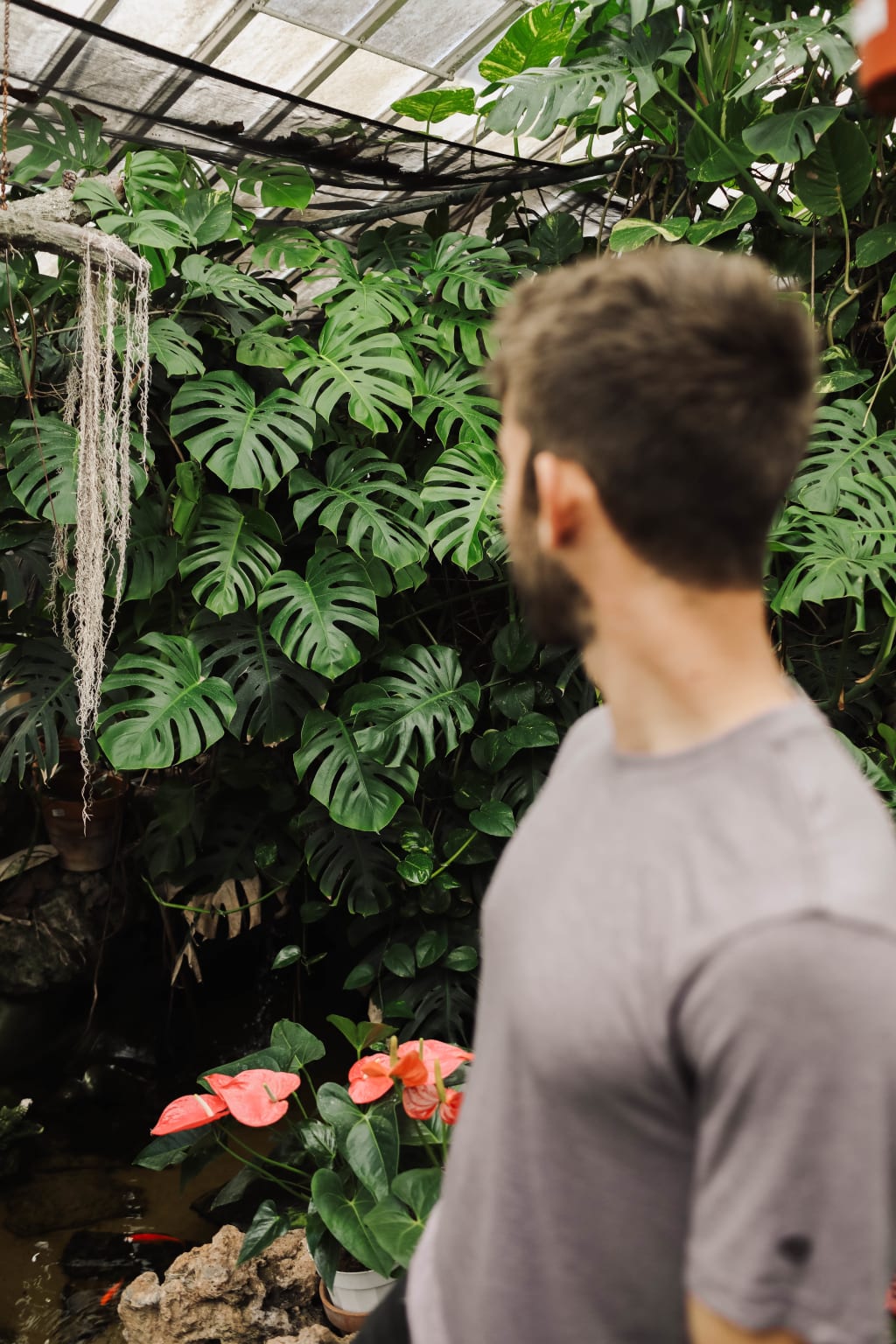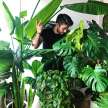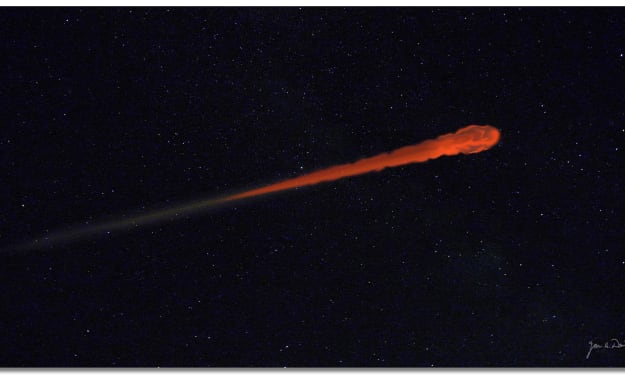What is Plant Blindness
How "seeing" plants can help save our planet

As of August 17th, click HERE to listen to this story and an interview with Farmer Nick on Write Here, Write Now, Vocal's new podcast.
“Oh, I’ve never noticed this before,” said my mother as she leaned down to inspect the leafy rhubarb that was popping its head up on a warm spring morning.
“Has this always been here?”
“Yup,” I laughed. “For three years actually.”
As the mother of a plant-obsessed millennial with a blooming houseplant and garden design business, it’s not surprising that she’s starting to pay more attention to the botanical life around her, but this wasn’t always the case.
Growing up in a housing project nestled in the concrete jungle of Brooklyn, my mom wasn’t exposed to plants in her youth. Plants were never on her radar in the city environment she lived in and why would they be? They served no “purpose” in her daily life, so they were simply out of sight and out of mind.
Even those that grow up in green-filled suburbs or rural areas do not always appreciate or consciously observe the plants around them. For most, a forest simply blends into the background of daily life, and without anyone there to break down these botanical boundaries, the plants remain seen, but not recognized.
This is what is known as “plant blindness.”
The term plant blindness was first coined by US botanists Elisabeth Schussler and James Wandersee in 1998 and they describe this phenomenon as “the inability to see or notice the plants in one’s own environment.”
But Nick, I see plants all the time. There’s no way I’m plant blind.
I believe you, and my guess is that most of you reading this are not plant blind because somewhere along the line you had your eyes opened to the beautiful world that is the plant kingdom. It took 22 years for me to gain my plant vision, and it all started when I began gardening after college.

During Hurricane Sandy, in 2012, my family home lost a tree in our backyard - coincidentally landing on my childhood room - and that patch of earth lay bare and forgotten. Looking back on it now, it was almost as if Mother Nature herself was knocking on my door telling me to wake up and start paying attention to the plant world around me. Needless to say, many others suffered far greater losses than that tree that had shaded my childhood; but its destruction was a symbol of nature’s process and its absence could be the source of a green renewal. It was a sign of divine intervention... and when I returned home after graduating college in May of 2014, my mother posed this question to me:
“Why not start a garden in the backyard?”
My corporate job in New York City didn’t start until September, and without knowing anything about plants or growing food, I agreed. I had never so much as cared for a houseplant, but I figured this would be a fun experiment to pass the time. Little did I know, she had planted a seed in my mind at the exact moment I was searching for my new identity, and it was only a matter of time before the idea for Farmer Nick germinated.
That first summer I planted tomatoes, cucumbers, and zucchini. I bought all the seedlings at a local nursery, used basic soil from the hardware store, and watered them once a day (if I remembered). I didn’t think much of it, but the moment that first tomato started to form on the vine, I was hooked. Watching their slow and steady progress became an unexpected source of happiness, and getting to taste the fruits of my labor for the first time is a feeling I’ll never forget. I was now connected to the earth and the soil, and suddenly it felt as if a curtain had been raised from my eyes.
There weren’t just plants in my garden… there were plants EVERYWHERE. The innocuous shrub along the fence was actually a lilac with sweet-smelling blooms in spring, creeping phlox spilled over the stone wall with bright white and pink blooms, and an ancient dwarf maple spread its branches wide across my neighbor’s front yard. Even the doctor’s office had a magnificent pair of fiddle leaf figs that stood proudly at the entrance.
How had I not seen and appreciated this beauty before?
Reading this, you can probably recall your own moment when you broke free of your plant blindness, and I can honestly say that it changed my life forever.
Still, the average person barely recognizes or acknowledges plants in their day to day lives. They are merely a green backdrop in their lived experience, or they may not have them in their environment at all.
It is not surprising to me then that plant blindness is correlated with “nature deficit disorder” (the idea that humans, especially children, are experiencing behavioral and health issues due to a lack of exposure to natural environments), and it will only worsen as we continue to urbanize. However, part of our plant blindness is also evolutionary. According to Fushimiro Kano, an ape psychologist at Kyoto University in Japan, we humans are predisposed to be interested in creatures that are more similar to us. This is why we ignore the subtlety of hard to distinguish plants, and instead hone in on animals that move, have faces and remind us of ourselves. Compared to a chimpanzee, plants are difficult to differentiate from one another and their lack of observable movement does little to make them more conspicuous.
However, just by acknowledging their existence in our ecosystem, we can develop a stronger desire to protect them. According to psychologist Kathryn Williams of the University of Melbourne, by seeing animals as more similar, it encourages empathy, which in turn causes us to assign them human characteristics (a phenomenon known as anthropomorphism). The more we anthropomorphize them, the more we desire to protect them. This becomes exceptionally clear when (in 2011) plants made up 57% of the federal endangered species list in the United States yet they received only 4% of the federal endangered species funding. This is devastating to conservation efforts and Williams says that:
“Building those emotional connections with ecosystems and species and the plant as a whole is crucial for plant conservation.”
I couldn’t agree more with her assessment, which is why I am so passionate about bringing green into people’s lives, especially those living in urban areas. Many folks living in cities like New York and Los Angeles may never be exposed to plants in the first place, and without that exposure, there is little chance they will grow to care about the natural world. They need to SEE IT to believe it, and even if they don’t walk away with a positive plant experience, they will become aware of the plant world more than they were before. I consider that plant progress.
I believe that plants are the stepping stones that will lead to environmental action, and it is why I will continue to visit botanical gardens, plant beautiful landscapes and anthropomorphize plants (even if that means pretending to be a plant and talking to my human caretaker as part of my Human v. Plant series on Instagram).
Collecting houseplants or building a garden for the first time may seem like an independent action, but the more you expose yourself and those around you to plant life, the easier it will be to gain support for conservation and climate change initiatives. Plants have been on this planet far longer than we have, and I’m certain they will still be here when we’re gone, but that shouldn't stop us from regaining our plant vision.
We just need to open our eyes.
SOURCE:
https://www.bbc.com/future/article/20190425-plant-blindness-what-we-lose-with-nature-deficit-disorder
About the Creator
Farmer Nick
Nick Cutsumpas
@farmernick on Instagram
Plant Coach + Urban Farmer 🌱 LA | NYC📍
Plants = regenerative stepping stones 🌍
Reader insights
Nice work
Very well written. Keep up the good work!
Top insights
Easy to read and follow
Well-structured & engaging content
Eye opening
Niche topic & fresh perspectives






Comments
There are no comments for this story
Be the first to respond and start the conversation.